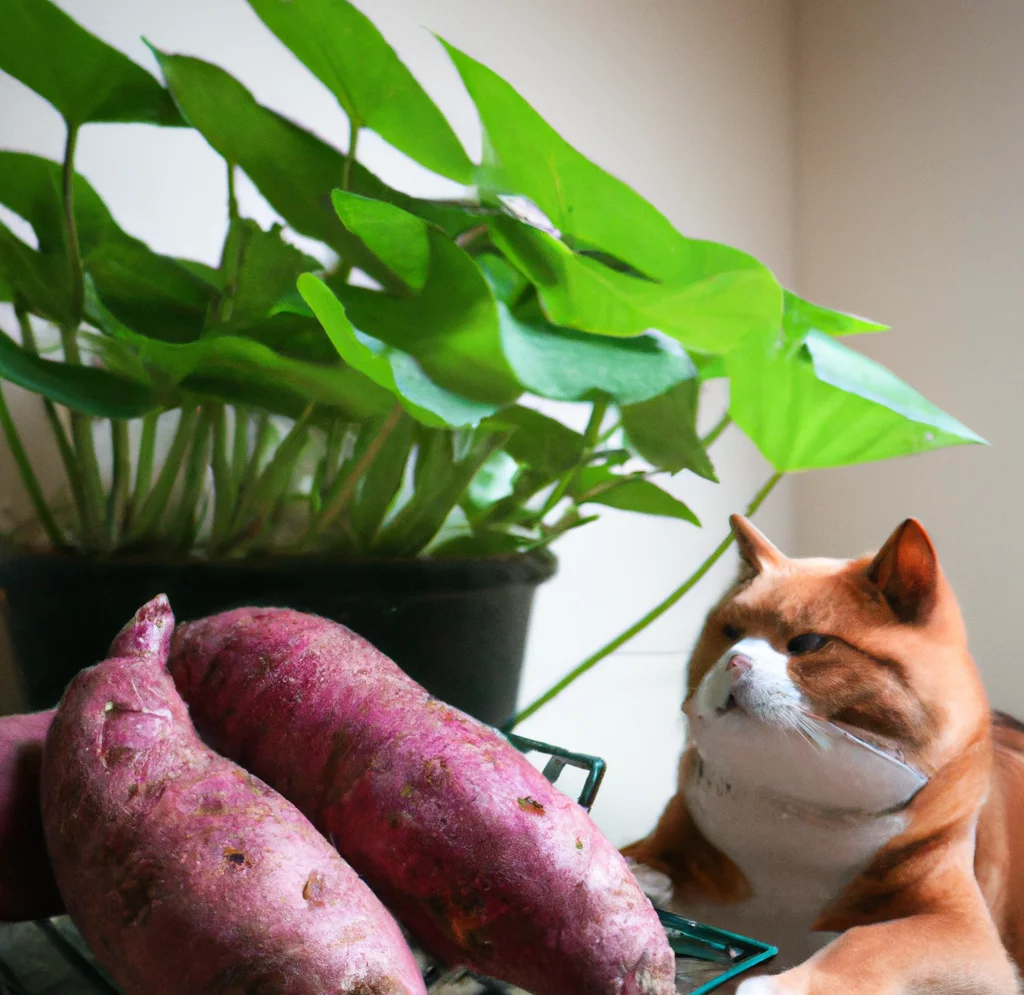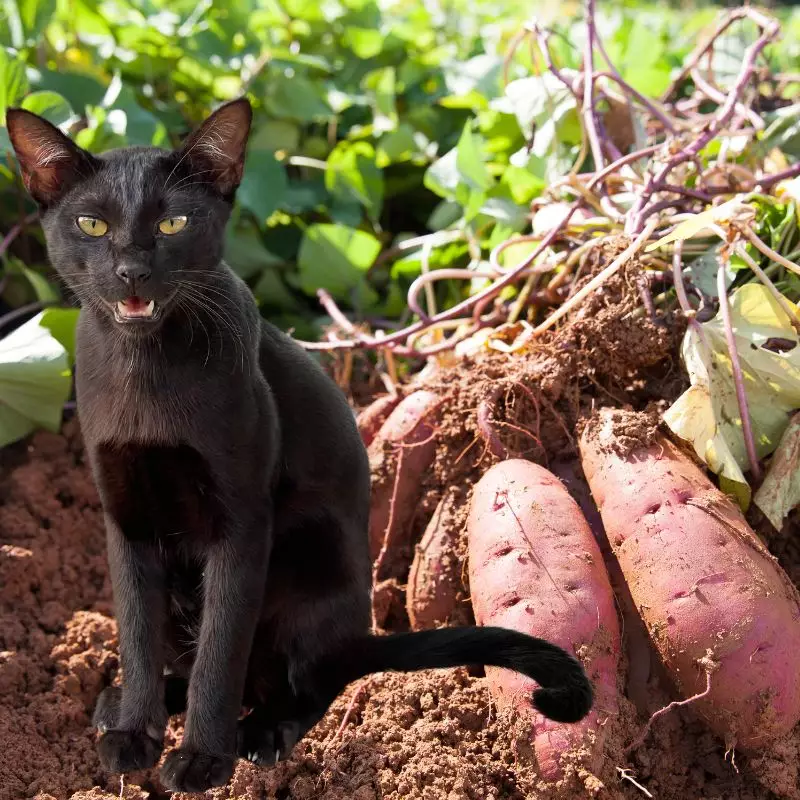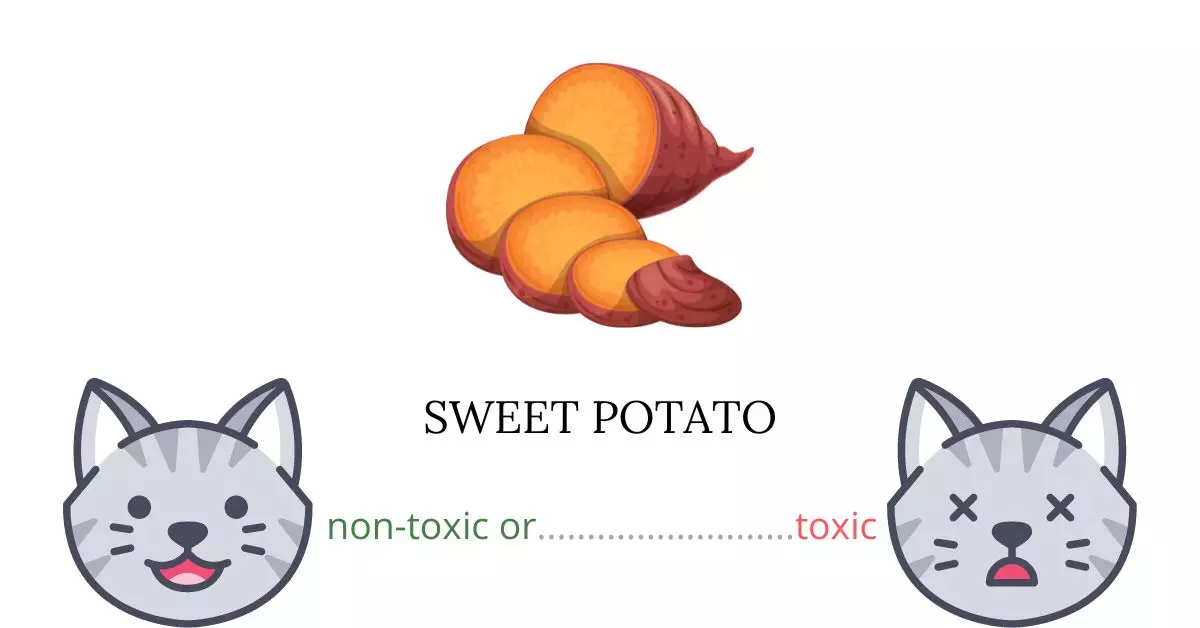Sweet potatoes are not toxic for cats. However, like all foods not part of a cat’s regular diet, moderation and supervision are key when introducing this root crop to your feline friend.
This article has been meticulously crafted in collaboration with a team of experienced DVMs (doctors of veterinary medicine). Their expertise ensures that we offer accurate and up-to-date information on the potential risks associated with various plants, including sweet potatoes, and their effects on cats. Additionally, to validate our findings, we have consulted high-authority websites such as ASPCA and PetMD.
It’s noteworthy to mention that the sweet potato vine is listed as a non-toxic plant for cats by the ASPCA (American Society for the Prevention of Cruelty to Animals).
Can Cats Eat Sweet Potato?

Cats can eat sweet potatoes in moderation. Eating excessive amounts of cooked sweet potatoes may cause cats to have digestive issues. Small amounts, however, can relieve constipation due to sweet potatoes’ high fiber content.
Sweet potatoes are used as an ingredient in some cat food recipes. This ingredient is present in a variety of fantastic nutritional options on the market. It is primarily used to aid digestion and regulate the body.
Cats should refrain from consuming raw sweet potatoes. Raw sweet potatoes are difficult for your cat to digest and can cause internal damage. If you catch them eating a raw sweet potato, keep an eye out for symptoms of stomach upset.
What is Sweet Potato?

Tropical regions of the Americas are the sweet potato’s natural habitat. Its scientific name is Ipomoea batatas. Its large, starchy, and sweet-tasting tuberous roots are used as a root vegetable. The flesh and skin of sweet potato tubers can be any color due to selective breeding.
Although the plant’s leaves and shoots are edible, the sweet potato’s starchy tuberous roots are without a doubt the plant’s most important product. In some tropical regions, they are a main source of food. The tuber is frequently cooked before consumption to enhance its nutritional value and digestibility.
Sweet potatoes that have been flavored are harmful to your cat and unnecessary. Always serve sweet potatoes plain, without any additional ingredients, if you ever give your cat sweet potatoes.
Keeping Cats Away From Sweet Potato

If a cat frequently visits an area of your garden, you must remove any feces as well as some of the soil. You also consider laying chicken wires on top of your soil or try sprinkling cat repellent in the area. Cats won’t use the soil as a litter box if this stops them from scratching and digging in it.
Try scattering pinecones, brush, or twigs over the soil’s surface because cats hate to step on rough or prickly surfaces. Rose, holly, or raspberry thorny clippings work well as well. They find it challenging to dig in rough mulches like large stones or coarse wood chips.
Keep the soil in your yard moist to discourage cats from digging there. If you catch them in the act, take it a step further and squirt them with a hose. Try installing a motion-activated sprinkler if stray cats are sneaking in at night.
Plants to Avoid For Your Cats
If you are a cat owner and unsure if the plants growing in your yard are harmful to your cats, check out this list of toxic plants for cats. You can also check our list of non-toxic plants for cats.





